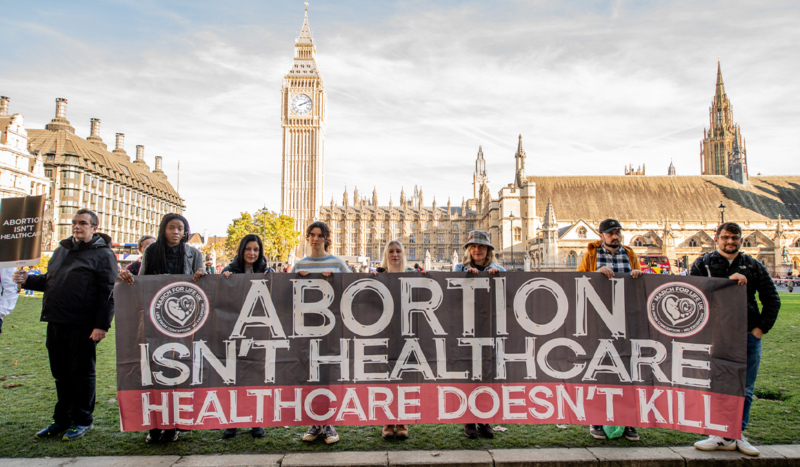
March for Life UK / Facebook
CV NEWS FEED // Pro-abortion advocates are concerned that the pro-life movement in the United Kingdom is incrementally widening its scope and efforts especially after being encouraged by the fall of Roe v. Wade in the United States.
Writing for the Lifestyle section of the UK-based publication The London Evening Standard, Vicky Jessop wrote an article titled “The rise of the anti-abortion movement in the UK,” giving a look at some aspects of pro-life advocacy in the country.
MSI Reproductive Choices’ UK Head of External Affairs Louise McCudden said in The Standard article that while most people in the UK support abortion, “the anti-choice groups are very vocal [and] they’re quite well organised … when Roe v Wade was reversed in the United States, we saw a big surge in anti-choice activity outside our clinics, harassing women on their way in to get an abortion. And we know that they did feel emboldened by that and they saw it as a victory for their global movement.“
Jessop wrote that Poppy Jay, who filmed a documentary on the UK pro-life movement, noted, “Whatever happens in America it’s got a trickle-down effect to the rest of the world and so it’s absolutely emboldened anti-abortion groups, not just in the UK but in Europe.”
The BBC recently released the documentary filmed by Jay titled Young, British and Anti-Abortion, which spotlights several Generation Z people spearheading pro-life advocacy in England.
“What’s surprising is how young many of them are,” Jessop wrote.
Two of these activists are Eden McCourt, a 23 year-old who is outspoken on social media and attends pro-life marches in London, and Madeline Page, who is shown in the film giving a pro-life speech at a university, according to Jessop.
“[Page’s] appearance sparks a large protest among the students there, but that doesn’t make her presence any less concerning,” Jessop wrote.
Jay said in The Standard article that she didn’t think people in the United States in 1973 could have anticipated the changes in the abortion landscape that have since occurred.
“But everyone I spoke to in the pro-choice side said, this is something that we need to be concerned about… we shouldn’t be the resting on our laurels,” she continued. “We could be sleepwalking into what is happening in America, so certainly from the pro-choice side, we need to be vigilant about our rights.”
According to Jessop, there is both pressure to fully decriminalize abortion and eliminate abortion restrictions in the country, but also “a growing movement both inside and outside of Parliament who want to make them tougher.”
Member of Parliament Nigel Farage said recently, “You know, is 24 weeks right for abortion, given that we now save babies at 22?” according to Jessop. Farage added, “That, to me, would be worthy of a debate in Parliament.”
This fall, the UK implemented a “buffer zone” prohibiting pro-life efforts within 150 meters of abortion facilities. The new law reportedly allows for unlimited fines against those who violate the zone.
Jessop wrote that shortly after the “buffer zone” law took full effect, 60 pro-life activists protested outside Parliament. Jessop also reported that “money is pouring into UK-based pro-life charities,” such as the Center for Bio-Ethical Reform (or CBR), which also often holds anti-abortion protests in public squares.
In October, a UK veteran was convicted of a crime after standing outside an abortion facility and praying silently for his son, who was killed by abortion 22 years ago. A pro-life woman was arrested twice for silently praying in her head for unborn children outside of an abortion facility. She has since been acquitted in court, and has received an apology and payment from the police.

